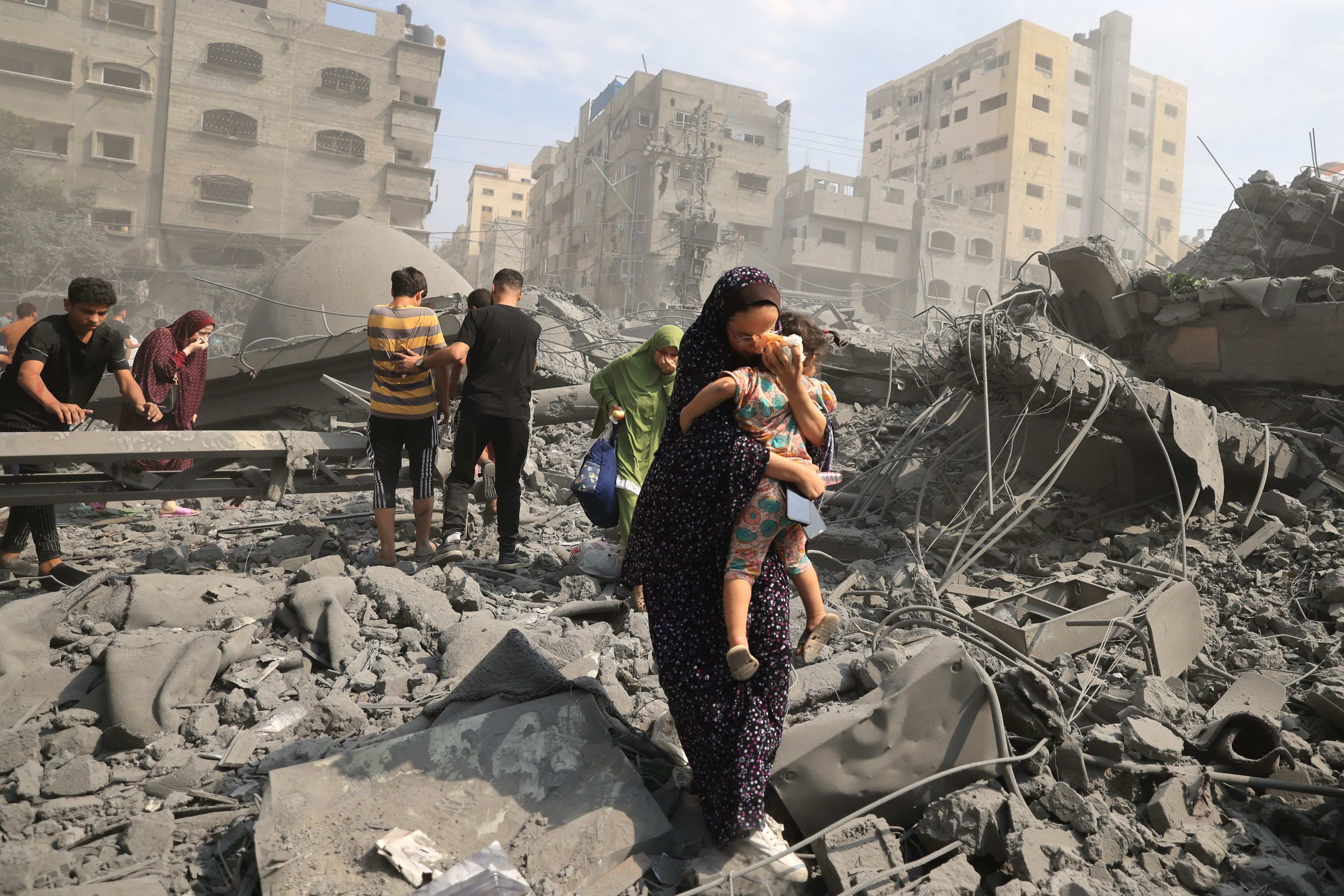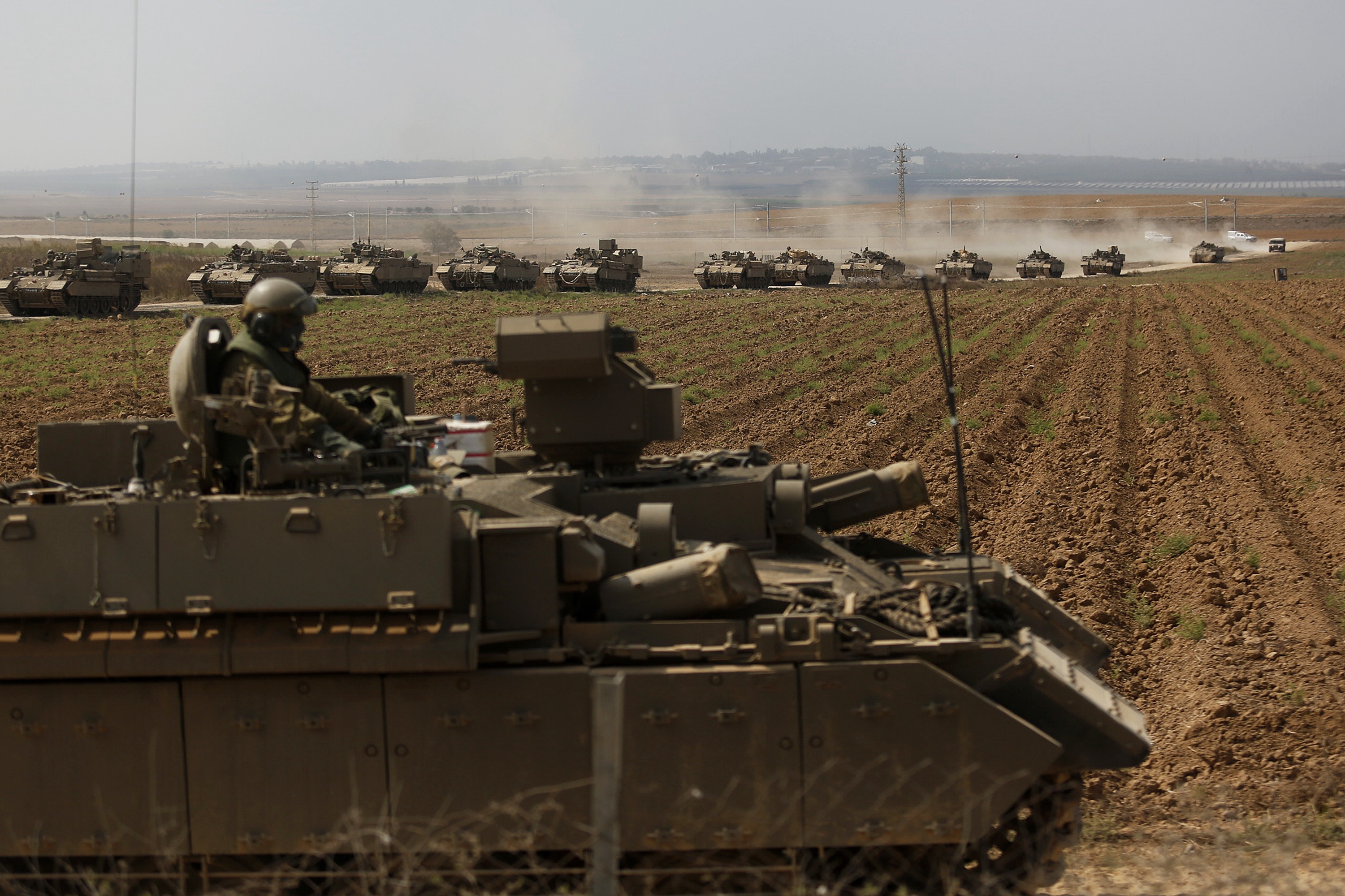
Politics & Society
Q&A: Israel, Hamas and the future of the Middle east

It’s increasingly difficult to see a way out of the escalating conflict between Israel and Hamas that has already seen thousands of civilians lose their homes, families and lives
Published 20 November 2023
On 7 October, just over five weeks ago, an unprecedented Hamas attack on Israel provoked intense fighting in the Gaza Strip – raising the prospect of a broader military crisis in the Middle East.
Executing plans in reportedly development for over a year, more than two thousand armed Hamas militants invaded Israel in multiple waves. Their brutality is in evidence from the videos and photos, taken both by the attackers and by Israeli first responders, as well as forensic examinations of the bodies of those killed.

With over 1200 dead, including an estimated 845 civilians and at least 240 thought to be taken hostage, this was the most lethal day in Israeli history and the largest mass murder of Jews since the Holocaust.
The attack represents a security failure of massive scope as well as an unanticipated degree of operational sophistication by Hamas, a militant Palestinian nationalist and Islamist movement.
Hamas’s ability to collect information on its targets, coordinate its attack teams, destroy Israel’s early warning system and keep its plans secret are noteworthy.
But the greatest enabling factor seems to be that Israel’s top officials were convinced Hamas was not interested in violence at this time. Hamas contributed to this via deception – but nevertheless carried out many preparations in the open or on channels vulnerable to interception had Israel cared to watch.

Politics & Society
Q&A: Israel, Hamas and the future of the Middle east
So, the failure goes beyond intelligence and extends throughout all echelons of Israel’s defence and government apparatus.
Almost immediately, Israel began an intense campaign of airstrikes across the Gaza Strip, focused heavily on Gaza City.
So far, this bombardment has killed an estimated 13,000 people by latest reports – a majority of whom are likely civilians, and a plurality of those likely children. The United Nations estimates that half the residential units in Gaza are damaged or destroyed, and over a million Palestinians have been displaced – many with no homes to return to after the fighting is over.
Israel began a ground operation on 27 October to encircle Gaza City. While airstrikes continue throughout the entire Strip, that initial heavy bombardment has largely subsided.

The main focus of the ground operation is to destroy Hamas’s military infrastructure, which remains degraded but still largely intact within an extensive system of subterranean tunnels.
Israel’s military response has created an enormous humanitarian crisis. Thousands of civilians remain at risk, as large numbers of people shelter in United Nations Relief and Works Agency (UNRWA) schools and hospitals.
The limited supply of humanitarian relief is not adequate to provide food and clean water to displaced people, and sanitary conditions are largely degraded; this is likely to lead to epidemics of diseases linked to contaminated water, alongside the public health impact of malnutrition and exposure.

Politics & Society
Daring to resolve conflicts without war
Globally, there has been a significant uptick in antisemitism and anti-Muslim or anti-Arab violence.
London police have reported an almost 1400 per cent increase in reported antisemitism incidents. Across the United States, the Council on American-Islamic Relations has recorded a nearly threefold increase in anti-Arab and Islamophobic bias.
As long as Israel’s military operation continues, these trends are unlikely to decline – even if the number of people willing to attend protest rallies diminishes alongside the intensity of the massive aerial bombardment.
Jewish and Muslim communities around the world been drawn into this crisis, regardless of affiliation or interest.

Israel continues to face significant international criticism on the basis that its use of military force is massively indiscriminate and disproportionate to any military needs or gains.
However, Israel’s closest western allies have been supportive; although privately, US officials are pushing the Israeli Prime Minister, Benjamin Netanyahu, to limit bombardments and permit greater humanitarian aid.
Nor have Israel’s Arab allies abandoned it – Saudi Arabia, the United Arab Emirates, Egypt and Jordan have all been restrained in their rhetoric, even if they have nominally condemned Israel’s military operations.

Politics & Society
The Afghanistan withdrawal: This is what decolonisation looks like
And Israel’s neighbours are clear that they will not take over administration of a devastated Gaza or absorb Palestinian refugees.
A second war between Israel and Hizballah (or Hezbollah – a Shiite Muslim political party and militant group based in Lebanon) may still begin, as low-level fighting with fatalities continues between them, and Israel evacuated its northern communities.
Some evidence suggests Iran is pushing its allies and proxies to be more active; Iran-backed groups in Yemen say they launched cruise missiles at Israel, which were intercepted by US and Israeli missile defence systems.
Here too there is the possibility of escalation, though US naval deployments in the Mediterranean and the Persian Gulf seem to have deterred Iran from greater involvement.

Israel’s government is fractured on whether Hamas must be destroyed or enfeebled, whether the Gaza Strip must be permanently reoccupied or turned over to the Palestinian Authority, whether to expel some or all Palestinians permanently, or some combination of all of the above.
Some rhetoric from Israeli public figures appears to express genocidal intentions (by mainstream legal standards) – but this does not seem to reflect systematic policy.
Official statements affirming the distinction between Hamas combatants and non-combatant Palestinian civilians, and on-the-ground activities such as issuing warnings prior to airstrikes, suggest an intention, however well or poorly executed, to adhere to international humanitarian law.
In the coming weeks and months, Israel is unlikely to fully destroy Hamas but will likely leave the latter unable to engage in significant military or administrative activity for a long time.
This will leave the Gaza Strip without a functioning government and with enormous reconstruction and humanitarian needs.
Palestinian residents of Gaza are looking at a long-term situation of near-complete reliance upon international humanitarian aid. Displaced people will remain displaced until significant reconstruction, and as long as they are displaced, economic activity will remain at a near stand-still.

That’s two million people living in extremely dire conditions for many months, and in worse-case scenarios, years.
The Gaza Strip will need a new administrative and custodial arrangement. The Israeli public has little desire for Israel to play this role, and with no other country willing to shoulder the burden, the Palestinian Authority (PA) – the governing body that oversees parts of the Israeli-occupied West Bank – will likely end up accepting responsibility.
But it will need something big in return.

Politics & Society
The reality of terrorism: Old and new
The PA and its president Mahmoud Abbas will be viewed by the Palestinian public as collaborating with Israel if it assumes control of Gaza without an enormous concession of some kind.
Moreover, the PA is already near economic collapse and Abbas has no clear successor. Should he be unable, either politically or due to his advanced age, to govern the territory, an ensuing power vacuum may lead to worse people than Hamas vying for power.
The Netanyahu government is unlikely to survive much longer as a significant majority of Israelis are now calling for elections. Its replacement will be the one to make the necessary concessions to the PA in exchange for administration of the devastated Gaza Strip.
It is hard to imagine what kind of concession this would be, short of renewed peace negotiations and some significant step towards recognising an independent Palestine, but it’s also hard to imagine who, amongst the potential parties and leaders, would be able to form a new governing coalition in Israel. And who would actually make this offer?
In short, the current situation is bleak and it’s difficult to see how this is likely to improve any time soon.
Banner: Getty Images